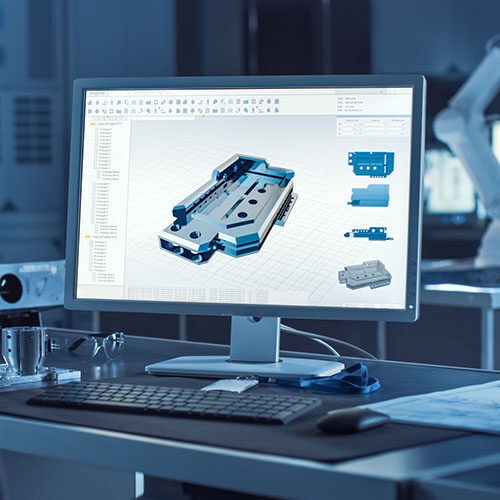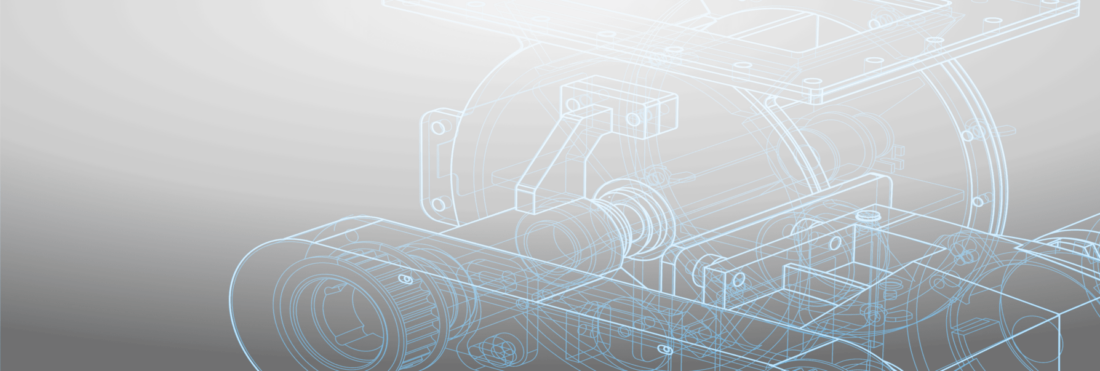
A common misconception about ERPs is that they are for large-scale companies only (the word enterprise is a part of their name after all), but more and more small businesses are turning to ERPs to help them integrate all of their business processes and data into one place. No business is too small for an ERP solution — just because you are a small shop doesn’t mean that you can’t operate like an enterprise-scale business, and use smart solutions, like ERPs, to streamline your production.
The hard truth is that a small business must be faster and sharper than the competition. ERPs allows small businesses to appear, act, and operate like an enterprise-scale business, ensuring that they can always meet the demands and needs of their customers. ERPs let you connect all aspects of your business and easily share real-time and accurate information throughout your company. ERPs can automate time-consuming steps, help you quote for more jobs and estimate with greater accuracy, reduce bottlenecks on the shop floor, and connect historical data to upcoming runs so you can easily optimize production over time. A good ERP option will offer a suite of business management tools such as a CRM, inventory tracking, a tasking system, a shipping manager, production planning, etc. However, too many unnecessary bells and whistles may cut back into your profit margin. As a small business you want to invest in the most cost-effective solution that has the features you need and meets your requirements, fits your industry, and is easy for your staff to use.
ERPs may have first been developed for large-scale enterprises, but now they are beneficial, and can be tailored to any size of organization. The marketplace now has many different ERP providers that cater to all types of businesses of different sizes and in different industries. If you are a custom manufacturer with lots of moving parts (literally) to keep track of, an ERP can help you stay organized and on top of your manufacturing processes. The trick is to look for an ERP solution that is tailored to your industry and your needs. ERPs that are designed for large-scale enterprises may not be the best fit for you, but if you take a look around you’ll find plenty of ERP providers that are designed for shops just like yours. And remember, there is no one size fits all ERP system: just as every business has a different competitive profile and customer mix, there too are a range of ERP solutions out there — you just need to look around and spend some time finding the solution that is best for you.
The reality of running a small shop is that employees wear multiple hats. Everyone pitches in wherever and whenever the need arises (which, as you know, is often). With so much going on, who on your staff has the time to manually process multiple spreadsheets and separate mountains of data? ERP systems geared towards small businesses are able to automate key business functions such as order processing, production, and finances, freeing up your staff to focus on more important tasks than data entry. In fact your small business will get many benefits from having an ERP:
- A single source of truth: Sounds ominous, right? But instead of each department in your organization having its own information system, all relevant data is stored in one place and can be shared and accessed by all departments. This eliminates the need to re-enter or export data, which translates into less errors, increased productivity and reduced expenses on human resource. Instead of your engineering department or sales team wasting precious time keying in data, with an ERP data needs to be entered only once, and then various departments can use, manipulate, and export the data they need to get their jobs done.
- Better decision-making: Real-time and accurate data provided by an ERP system can be beneficial for marketing, management, accounting, and enables your organization to make vital decisions on time, and reduce costs and waste. Teams can more easily detect any potential obstacles or issues that may affect productivity levels. And an overall picture of operations allows for business leaders to make effective decisions and respond quickly to a changing business environment.
- Increased throughput: With streamlined business processes, staff can shift their focus on managing increased volumes of business. With an ERP you can automate time-consuming steps, create more accurate quotes and estimates, and help to reduce bottlenecks that are tying up your production line. An ERP will let you do more with your existing resources.
Enterprise resource planning systems can be hugely beneficial to small and medium-sized enterprises. Don’t be scared off by the name!
Get your eBook Scared to implement a new ERP?
"*" indicates required fields



